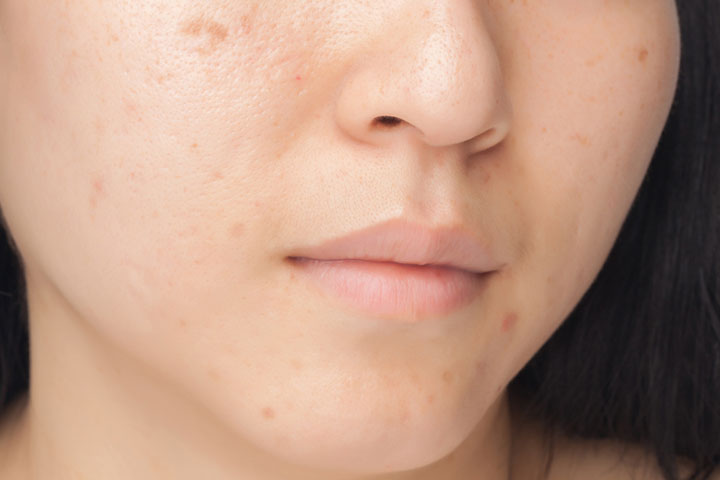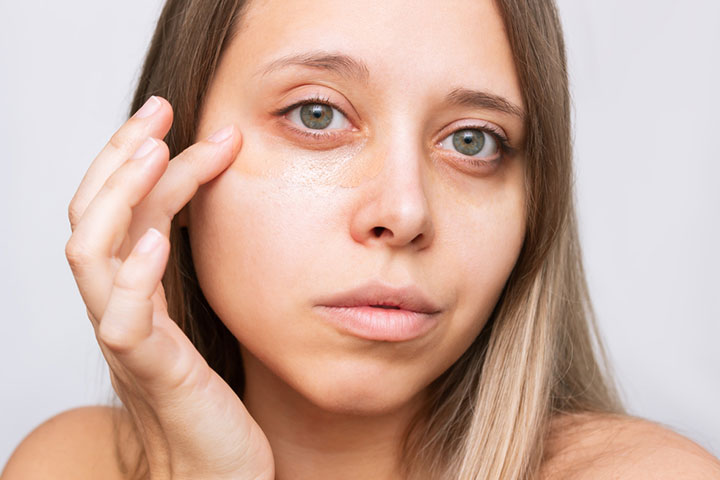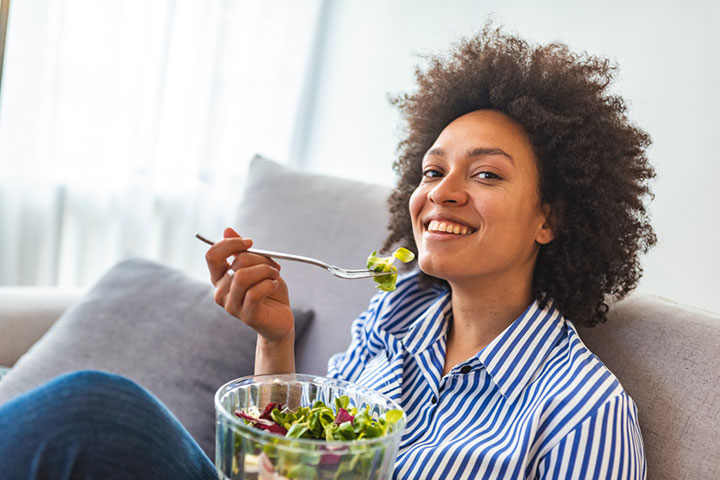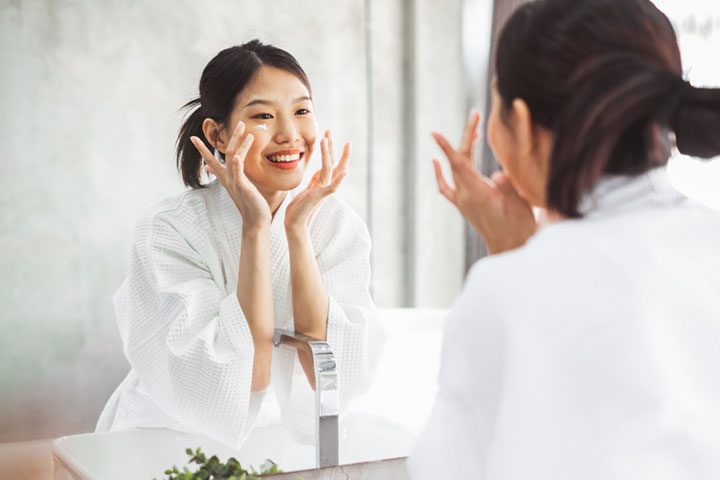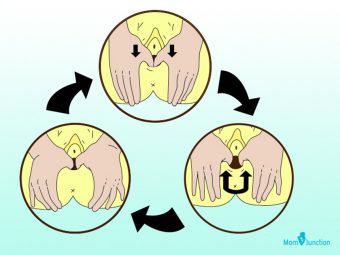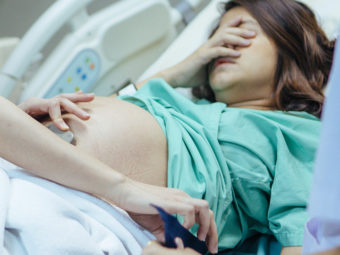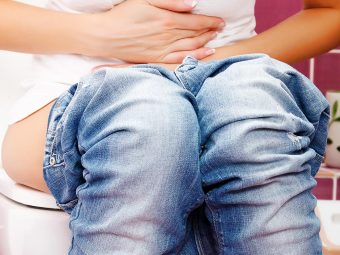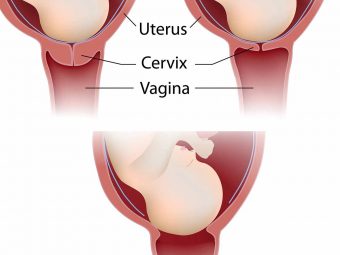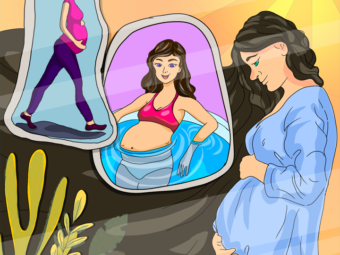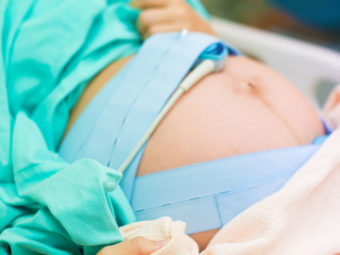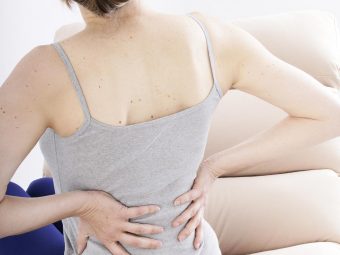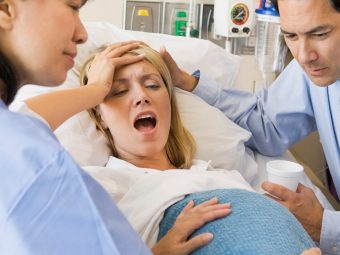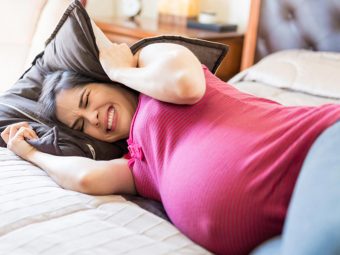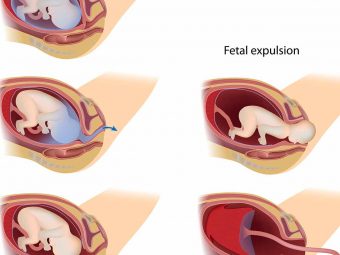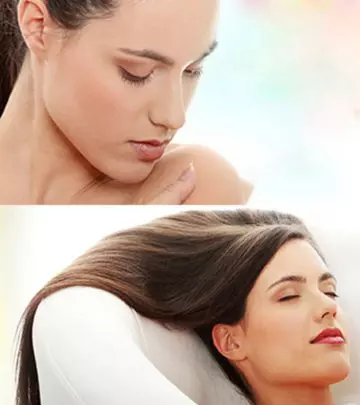
Image: ShutterStock
During pregnancy, the body goes through different physical changes. It makes postpartum skincare and haircare on the top of the list of many women who have delivered their babies. A good skincare and haircare routine can rejuvenate your skin and hair after nine long months of the roller coaster journey.
The physical body changes such as pimples, stretch marks, pigmentation, acne, dark circles, or hair fall that you experience during pregnancy are temporary. These mostly go away after pregnancy and restore to normal. Although the postpartum period solely revolves around motherly duties and your precious little one, skincare has a calming effect and is thus important for a happy mind and healthy body.
So, amidst the running around and chaotic environment, take some time out for yourself. Here we have an easy guide to help you pamper yourself and bring back that pregnancy glow with some simple tips and tricks.
Changes You See In Your Hair And Skin And What They Mean
While you are pregnant, you will be seeing a lot of change in your skin and hair. Here is what is actually happening:
a. Hair:
Here’s what your hair is going through:
1. Hair Loss:
Image: IStock
This is one of the most common problems that will haunt you from around the 3rd to 4th month post-delivery.
- During pregnancy, the hair is in the growing stage and the falling stage is slowed down.
- Thanks to the rise in hormone levels during pregnancy, you would have had luscious luxurious hair.
- Post-delivery, the hormone levels come back to normal and the normal hair cycle is resumed.
- Therefore, you will go through a phase of shedding a lot of hair, which may seem unusual, but is completely normal. Don’t worry, you are not going bald!
- This hair loss is temporary and you will see your hair texture coming back to normal 6 to 12 months post-delivery.
b. Skin:
Here’s what your skin is going through and how you can best manage it. Skincare after pregnancy requires a little more attention:
1. Acne:
Image: IStock
During pregnancy high progesterone levels can cause skin to become excessively oily, thus resulting in acne breakouts. Post pregnancy, due to hormonal changes, you may break out in acne, even if your skin was clear throughout your pregnancy.
2. Pigmentation:
Pigmentation or melasma is the dark patch or spots on your skin. These are caused due to high levels of progesteroneiXA female hormone responsible for menstruation and pregnancy. during pregnancy. Dark patches on your body or the line that runs below your belly will fade away on their own post-delivery.
3. Dark Circles And Puffy Eyes:
Image: Shutterstock
These are caused due to changes in hormone levels and the lack of sleep after having a baby. Your eyes tend to show the tiredness your body experiences in the form of puffed-up eyes or dark circles.
4. Stretch Marks:
Stretch marks tend to be one of the most stubborn ones to get rid of. As the name goes, it is caused due to the stretching of the skin. According to the National Health Service (NHS), stretch marks are common during pregnancy and can be seen in roughly 8 out of 10 pregnant women. These marks occur due to the sudden contraction of the skin after childbirth. The skin develops small tears, causing it to cringe in certain areas. These are usually found in the breast, stomach, buttocks, thighs, and behind the knee areas.
How To Reduce Hair And Skin Problems?
Here are some effective ways for skin care after delivery:
a. Hair:
So how can you keep the hair loss under control? Following these 6 simple tips will ensure you keep that hair loss in control:
1. Eat healthy:
Image: Shutterstock
- Ensure your diet is rich in foods that contain antioxidantsiXSubstances that may prevent or slow down some types of cell damage caused by harmful molecules called free radicals.
- Some good foods for the same are strawberry, apples, rajma, prunes, etc.
- The antioxidants help strengthen the roots.
2. Keep Your Scalp And Hair Clean:
- Wash your scalp with a gentle anti-hair loss shampoo.
- Condition your hair to avoid breakage.
- If you are short of time, apply a leave-in conditioner.
 Quick tip
Quick tip3. Avoid Pulling And Tying Hair:
- Refrain from keeping your hair tied up tightly as this will strain your scalp and hair.
- Doing so will make your hair fall out easily.
4. Vitamin Supplements:
- Your post pregnancy body will need some supplements to help you get back your strength.
- Ensure you take your vitamins like Vitamin B and C regularly to maintain fuller hair.
5. Chemical Treatments:
- Avoid coloring, straightening, and perming your hair, as this may lead to hair loss.
- Also, these treatments are high maintenance, so unless you really have to get one of these done for a special occasion, it’s best to stay away from them for a while.
6. Get A Great Short Haircut:
- If you are losing a lot of hair, go for a haircut and keep it short.
- Your hair will tend to look fuller and the new mom look will keep your spirits high!
Mitsukai, a mother, shares some tips and tricks on her blog which she used when she was suffering from hair fall postpartum. She says, “I treated my hair gently during this time, avoiding tight hairstyles and excessive use of heat styling tools. I opted for mild shampoos and conditioners and used a gentle detangler to prevent hair breakage. Regularly massaging my scalp improved blood circulation and promoted hair regrowth. Natural oils like coconut or argan oil also helped nourish my hair (ⅰ).’’
b. Skin:
To keep your baby-glow intact, here are some tips to reduce skin problems both during and after pregnancy:
1. For Acne:
Image: Shutterstock
- Make sure you cleanse your face with a mild cleanser twice a day.
- Apply a lightweight, oil-free moisturizer in the morning and night.
- You can use a mild scrub with small soft granules once a week.
- Use non-toxic products with mild or natural ingredients such as aloe vera and eucalyptus.
2. For Pigmentation:
- The spots on your face will also lighten and will most likely disappear after one-year post birth.
- To ensure you don’t aggravate the pigmentation or get new spots, ensure you use sun protection such as a sunscreen lotion daily, even if you tend to stay indoors.
- If you stay indoors during the day, use sunscreen with SPF 15.
- If you tend to step out for more than 10 minutes, use SPF 30 or SPF 50 and cover your skin as much as possible.
- As a daily moisturizer, use one that is specifically made for pigmented skin.
3. For Dark Circles And Puffy Eyes:
- Ensure you drink at least 8 glasses of water and have a healthy diet.
- Sleep when the baby sleeps, though it may feel odd to sleep for short naps multiple times a day, this is the best way to get some good sleep and rest.
- Apply a reputed brand of eye cream targeted specifically for dark circles and puffy eyes.
4. For Stretch Marks:
- The key is to avoid getting stretch marks in the first place, so as soon as you know you’re pregnant, start using a moisturizer rich in olive oil or an anti-stretch mark cream in the problem areas to focus on your belly and breasts.
- You can also massage your belly and breasts with olive oil regularly to keep them moisturized and avoid getting stretch marks.
- Post birth, if you have developed stretch marks use a reputable anti-stretch mark cream on the affected areas.
- One of the key measures for reducing stretch marks is a healthy diet and exercise.
- Post checking with your doctor, you can start with some form of exercise like brisk walking, light exercises or yoga to help you reduce the stretch marks.
5 Quick Steps To Look Like The Super Mom You Are
Even if you have great skin post-birth, it’s best to take care of your skin on a regular basis to avoid looking fatigued. Skin care after delivery is important as it can provide relaxation and radiance to your look. Follow this 5 step quick daily regime for your skin and hair to continue looking like a Supermom:
1. Cleanse: Use a mild cleanser twice a day, to keep your skin feeling clean and fresh.
2. Moisturize: Apply a lightweight moisturizer twice a day, to keep your skin hydrated and supple. Use a separate eye cream for dark circles or puffy eyes.
3. Protect: Shield your skin from the sun by using sunscreen. It also helps to keep acne and pigmentation away.
4. Exfoliate: Once a week, use a mild scrub with soft granules to remove the dead cells from your skin. Exfoliation helps to lighten dark spots and reduce acne.
5. Hair Care: Wash your hair twice or thrice a week with an anti-hair loss shampoo and don’t forget to condition.
Visit and share your concerns with your doctor if any skin or hair issue is bothering you. You may need medical help if the problem is severe.
Frequently Asked Questions
1. Why is my hair frizzy after having a baby?
After childbirth, you will experience hair loss. Once the hair loss phase is over, your hair will start growing back. You may see many tiny strands covering your scalp as the hair grows. These tiny strands may sometimes make your hair look frizzy. Most women’s regular hair growth pattern returns in a year (1).
2. Does biotin help with postpartum hair loss?
Yes. You may supplement your diet with biotiniXA water-soluble vitamin essential for the metabolism of lipids, carbohydrates, and protein. to improve your hair health after the birth of your baby. Also, you may try using shampoos and conditioners containing biotin for more benefits (2).
3. Can I use a tummy wrap after giving birth?
Postpartum tummy wrapping may be considered by new mothers irrespective of whether they have had a C-section or a vaginal delivery. These wraps may be effective healing aids that offer stability to your posture (5). However, consult your doctor before trying these.
4. How can I soothe itchy and dry skin after giving birth?
The changes in the hormonal levels after childbirth may affect skin and hair. Postpartum skin care and hair care are important to keep you confident and healthy. Adequate hydration, a balanced nutritious diet, and a gentle cleansing and moisturizing routine can go a long way to restoring skin health. You can also use sunscreen to prevent pigmentation. For hair, avoid chemical treatments and keep your scalp clean and hair conditioned. Also, get a short haircut to reduce hair loss. However, seek medical help if the problem is severe.
Infographic: Tips For Reducing Post-Pregnancy Skin And Hair Problems
Pregnancy and childbirth can take a toll on your body, and your skin and hair can be affected too. So, scroll through the infographic below for effective skin and hair care methods after childbirth. Following these tips can help restore your skin and hair to its pre-pregnancy state. Illustration: Momjunction Design Team
Key Pointers
- Hair loss, acne, dark circles, and stretch marks are the most common hair and skin problems postpartum.
- Drinking plenty of water, getting enough sleep and exercise can keep the skin and hair healthy.
- A well-balanced nutritious diet is crucial for hair growth and frequent cleansing and moisturizing can improve skin health.
- However before starting a new hair or skincare regime post-pregnancy, it is best to consult a doctor.
Nurture your skin as a nursing mom with the guidance provided in this video. Gain valuable tips on establishing a suitable skincare routine for you and your baby.
Personal Experience: Source
MomJunction articles include first-hand experiences to provide you with better insights through real-life narratives. Here are the sources of personal accounts referenced in this article.
ⅰ. My Postpartum Hair Loss Journey: Understanding and Coping;https://medium.com/@mitzukai_biz/my-postpartum-hair-loss-journey-understanding-and-coping-1395440ee574
References
- Hair Changes in Pregnancy and Postpartum – What’s Going On?.
https://www.lamaze.org/Giving-Birth-with-Confidence/GBWC-Post/hair-changes-in-pregnancy-and-postpartum-whats-going-on - Pregnancy and Hair Loss.
https://americanpregnancy.org/healthy-pregnancy/pregnancy-health-wellness/hair-loss-during-pregnancy/ - Hair Loss in New Moms.
https://www.aad.org/public/diseases/hair-loss/insider/new-moms - Pregnancy Stretch Marks.
https://americanpregnancy.org/healthy-pregnancy/pregnancy-concerns/what-are-pregnancy-stretch-marks/ - Postpartum Belly Wraps: Purpose
Types - Itching.
https://cybercemetery.unt.edu/archive/oilspill/20120921215758/http://www.nlm.nih.gov/medlineplus/ency/article/003217.htm - Dry Skin.
https://myhealth.ucsd.edu/RelatedItems/85





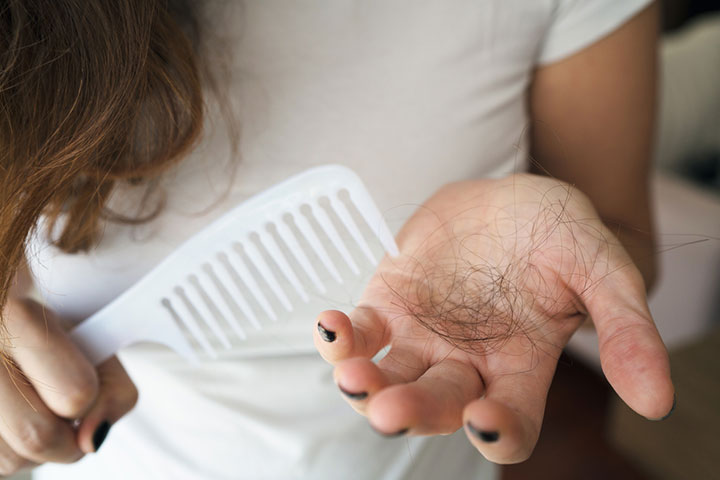
 Did you know?
Did you know?